#陳耀圻
Photo
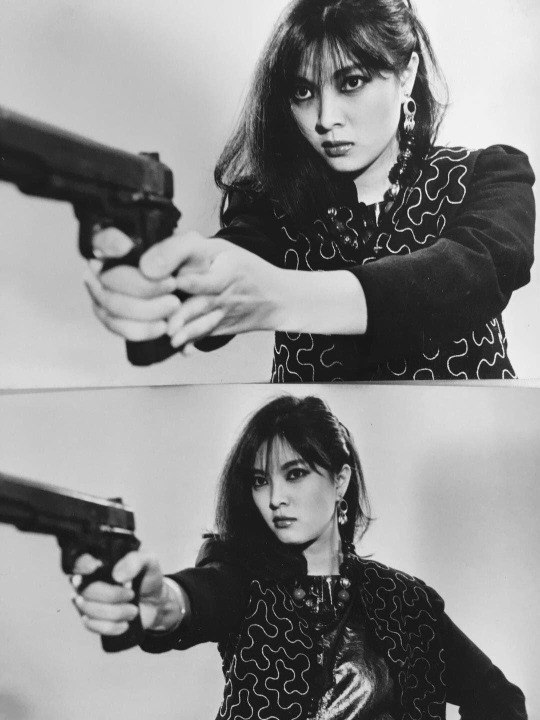
Promotional photos of Chen Yao-chi’s film “Girl with a Gun” (1982)
592 notes
·
View notes
Text
歷年交通部航海人員測驗通過名單
榮譽榜
榮譽榜
2021/03/12
歷年交通部航海人員測驗通過名單
112年度第四次交通部航海人員測驗通過名單
李友賢 陳冠廷 吳悅恩 紀琪云 湯育銘 廖子軒 金智勇
李悦恩 陳芮蓁 鄭楚玄 吳怡儒 陳冠典 林政閔 郭彥呈
林昕穎 柯博壬 樊洪範 王 曦 陳紜璽 金祺昌 彭吉民
112年度第三次交通部航海人員測驗通過名單
吳峻安 陳威仁 吳舜齊 歐乃瑄 何凡宜 賴冠勳 唐聖傑
張 傑 李沐澤 張安志 張哲源 黃曉祺 鄔翎民 鄭淞元
黃建智 陳俊儒 林秉緯 董翊河 賴柏安 黃勖堯 叢浩日
黃維貞 莊妤薇 童威凱 宋家興 黃苡寧 呂俊諺 王 敬
陳奕丞
112年度第二次交通部航海人員測驗通過名單
曾傑興 陳飛馹 洪笥宸 黃薏珊 黃柏豪 王聖燁
廖柏銜 蔡怡安 黃博裕 郭裴珞 潘家偉 李 韡
112年度第一次交通部航海人員測驗通過名單
吳建鋕 鄭乃豪 吳奕翰 李峰綸 呂孟修 柳理鈞
鄭衣涵 彭盈瑾 吳姿樺 蘇榆傑 林宏宇 邱 頎
陳加寶 黃盈樺 許秉毅 黃祥銘 柯秉志 蔣鈞傑
謝印荃 蔡佳佑 施健安 顏毅祺
111年度第四次交通部航海人員測驗通過名單
劉耀文 李光燡 鄭名登 張謝仁傑 臧紹棠 藍囿竣
陶子天 卜 野 蔡沛全 屈恩霆 戴維彥 黎丞軒
陳坤華 陳宇祺 莊凱傑 劉柏裕 張宸瑄 林子軒
應德樫 吳玟玟 陳莞昀 許家洋 王彥翰 董昀澍
秦詡洋 蔡國禎 蕭瑋呈
111年度第三次交通部航海人員測驗通過名單
蔡承展 王邦宇 李明穎 王哲明 陸泓瀚 陳冠元
薛雅琪 黃維慈 楊鈞皓 蘇柏鴻 翁定謙 張澄明
紀明輝 劉家綺 陳昭穎 林佩諠 謝明翰 潘品瑜
呂信宏
111年度第一次交通部航海人員測驗通過名單
吳雨修 陳彥旭 王柏騰 王靖元 龔俊霖 高家維
陳麒元 劉朝瑞 邱毓媜 高瑜懃 郭紋均
110年度第四次交通部航海人員測驗通過名單
陳兆群 陳孟唐 楊智凱 蔡欣哲 陳冠宇 蕭可豪
葉建邑 黃彥欽 陳奕岑 傅振宣 陳志瑜 林儀靜
林俋帆 廖懿德 陳明穎 陳平宏 林宇晏 金莒譯
鄭貫良 曾榮威 林佳虹
110年度第三次交通部航海人員測驗通過名單
黃子駿 高平羲 李順意 林禹丞 林義昇 蘇善豪 劉永上 賴映璿
楊展銓 涂珮甄 王昱翔 汪筳逸 李香霖 方立文 呂子聖 蔡金洧
鄭學禮 張登壹 洪子晴 羅加舜 金知永 陳冠瑜 黃怡瑄 劉姿瑩
劉子琳 李挺瑋 劉文揚
110年度第二次交通部航海人員測驗通過名單
本次測驗因疫情取消。
110年度第一次交通部航海人員測驗通過名單
陳銘堯 曾冠銘 胡峻瑋 蘇文芯 林濬承 許慶成 姚羽珊 楊智凱
侯書堯 廖英順 李毓寧 賴政穎 王鈺馨 黃子庭 賴秉程 詹興瑋
慕 丞 林彣珊 鍾采君 劉峻廷 邱晉偉 張皓翔 余 崢 陳宗慶
孫 靚
109年度第四次交通部航海人員測驗通過名單
朱峻葳 黃紹輔 謝添旺 朱正育 張廣澄 楊秉鈞 林澔暐 高伯宗
連泓安 顏筱甄 蔡淙和 黃伯凱
109年度第三次交通部航海人員測驗通過名單
王律翔 馬碩澤 秦得仁 鄭琰勳 徐允恩 許碩軒 涂修銓 曾宇質
蔡翔宇 王順漢 蔡朝景 陳昱言 陳建智 蕭丞恩 郭宜雯 洪脩益
紀以謙 郭博彥 洪閔德 朱芳琪 呂偉豪 王啟哲 康翠芳 劉沛禎
蕭仕揚
109年度第二次交通部航海人員測驗通過名單
鄞嘉慧 曹 彤 吳祐緯 林宥宗 何勝揚 黃靖翔 陳威宇 石光仁
潘千瑞 余柏樟 沈芳妤 王昱筌 游家慶 沈琮德 沈得桓 曾丞佑
劉彥輝 龔世宇 林彥均 郭偉達 呂學杰 林昆毅 蘇聖欽 陳 翰
109年度第二次交通部航海人員測驗通過名單
本次測驗因疫情取消。
108年度第四次交通部航海人員測驗通過名單
洪郁雯 李 吉 林安蕎 張家偉 陳立朋 吳東翰 姚冠名 郭學頤
陳昫耘 顏情晴 陳均軒 簡呈宇 楊翊愷
108年度第三次交通部航海人員測驗通過名單
許至賦 曹家豪 吳哲瑋 黃信鈞 陳道賢 楊智雄 陳冠恩 劉奕頡
黃熙宇 洪佳琦 張博堯 陳冠丞 楊政達 葉重宏 吳宛蓉 陳柏霖
張宇鈞 胡榮發 楊崇杰 顏碩慧 蔡承叡 黃昶豪 許釗華 陳致恩
陳語謙
108年度第二次交通部航海人員測驗通過名單
林怡馨 林佩璇 曾玟靜 李 明 戚瑋宣 徐廣圻 陳以諾 孫暐翔
楊沛珍 鄭為遠 張朝復 涂易瑜 吳���憲 洪榮佑 馮郁軒 吳佩芸
陳琇瑩 翁浥迪 蔡定志 陳彥均 葉志鵬 許心茹
108年度第一次交通部航海人員測驗通過名單
喬䒩薷 陳子博 孔繁軒 楊旻桓 李名仁 歐嘉玲 陳奕鴻 黃臣延
盧至恒 馬菀嚀 許䟫源 龔士翔 劉宏倫
107年度第四次交通部航海人員測驗通過名單
吳晴杰 陳家馨 劉仲傑 林政廷 李孟霖 陳銘仁
107年度第三次交通部航海人員測驗通過名單
廖振超 江欣學 潘祥漢 洪正霖 張豪中 陳民旻 陳弈叡 葉原銘
鄭亘庭 葉祐廷 葉信旻 曾多郁 鄭凱軒 陸宜宗 陳冠璿 張寶智
江佳臻 楊曜宇 趙國程
107年度第二次交通部航海人員測驗通過名單
邱瑜惠 許郁培 陳翰星 陳昱先 莊蕙羽 曾宇鞍 張睿宏 陳靜儀
周琬絨 吳協益 王相智 許瑋庭 邱子倫 閆景宇 吳宗憲 莊爾修
107年度第一次交通部航海人員測驗通過名單
林宏洋 王宗政 曾詩忠 郭沂道 范廣玉 郭阜達 黃 笙 游竣凱
林群翔 林谷翰 汪宗宇 王竣薰 黃煜超 賴仁傑 李俊廷 黃赫立
陳柏皓 蘇泓文 林祥億 呂柏樺 吳錫安 李孟霖 林資堯 蘇美娟
吳宗翰 沈丞潁 戴岳軒 張家瑋 黃孝瑞 范家銘 沈文彬 廖尉翔
黃炫縢 曾詠鈞 陳妙盈 李庭瑜 梁秉辰 葉馨憶 辛萬億 陳維萱
許志豪 張閎涵 詹皓閔 吳連恩 洪綺郁
106年度第四次交通部航海人員測驗通過名單
許詠媛 蔡政宏 林峻民 許秦維 林駿吉 趙瀚恩 張皓翔 張晏碩
李珮瑜 王 騰 張睿鈞 李聖昱 張文憲 范乃歡 蔡博文 洪嘉揚
曾威榮 陳政廷
106年度第三次交通部航海人員測驗通過名單
陳柏翔 王翊名 孫朝義 王泓逸 許文豪 龔世豐 葉宗憲
106年度第二次交通部航海人員測驗通過名單
黃彥文 邱光輝 林羿羚 馬瑞遠 傅志豪 劉耘辛 陳政廷 朱冠溱
王奕云 邱胤文 陳彥均 徐 旻 葉品樂 童銘澄 林瑞紘 林佳泓
林胤名 沈立翔 陳盈佐 王崇任 方建宏 朱 昱 馬崇恩 施振宇
田宗翰 吳承翰 賴昱傑 林承緯 黃至煒 簡舒苗 吳佳霖 黃幸星
吳珮瑗 魏郁庭 蘇育萱 王映庭 黃致捷 許秉閎 粘銘翔 巫嘉瑋
莊逸椽 鄭哲誠 鄭崴鴻 邱亭芝 曹廷筠 郭柏賢 施奕如 廖柏彰
毛漢瑜 許明理 蔡承杰 孫大程
106年度第一次交通部航海人員測驗通過名單
黃基軒 江重毅 鐘承志 許雅如 林伯翰 吳仲軒 王家偉 張家瑜
藍家盛 黃祺翔 蔡孟欣 林于暄 楊婷儒 林煒翔 戴俊丞 袁乙天
陳厚凱 詹前奕 黃耀德 吳宜興
105年度第四次交通部航海人員測驗通過名單
張雅嵐 謝翔任 連育瑩 蘇冠綸 宋亞翰 吳清元 楊子毅 陳威仲
謝晉銘 陳奕儒 邱欣灝 陳柏文 羅 穎 黃奕姉 劉曉青 陳宣余
105年度第三次交通部航海人員測驗通過名單
陳柏宏 洪翊庭 楊卓翰 陶玉龍 黃馨億 張耿豪 陳裕翔 欒又鈞
劉昊融
105年度第二次交通部航海人員測驗通過名單
施自雄 蘇群閎 蔡瑞洋 張紹敏 楊佳銘 曾泰航 高舜業 吳中博
甘龍諭 褚原鑌 彭有國
105年度第一次交通部航海人員測驗通過名單
馬亞聖 黃湣傑 許鼎宗 陳昱中 陳祈維 陳奕睿 賴立凱 王玉萱
李靖群 蔡雨諦 郭丞恩 賴啟堯 呂昭諭 洪振華 賴澔興 郭家豪
林志華 洪敬翔 邱元昱 李翊甄 陳柏奕 陳琬菁 蔡岱庭
104年度第四次交通部航海人員測驗通過名單
黃昱維 溫宇�� 柯昂里 楊涵媜 溫威霖 林明正 芮佩霖 彭如軒
林雅婷 蔡佳頴 黃文孝 林顯隆 葛瑞翔 劉珮芬 張嘉琳 黃崑育
周明翰 鄭素惠 林奕豐 林文琦 廖芝瑩 黃冠惟 曾彥鈞 許瑋麟
劉家豪 林昭年 楊松儒 戴瑋儒 廖庭雅 陳柏宇 郭家愷 林勇吉
104年度第三次交通部航海人員測驗通過名單
曾慶峰 李尚儒
104年度第二次交通部航海人員測驗通過名單
林松杰 蔡銘全 吳育恩 宋政杰 劉博華 許珮瑤 賴俊丞 謝柏軒
郭明駒 劉心瑀 古偉寧 林宴週 阮皇宗
104年度第一次交通部航海人員測驗通過名單
梁騰皓 賴均和 鄧紹彬 行淑絹 李健為 陳泰睿 魏文志 林威丞
杜恩瑜 陳昱辰 鐵翔雲 倪昇暉 張嘉棋 林茂聯 江 盈 謝政良
黃德倫 劉宗諺 詹欣怡 楊宗岳 簡得晉 蕭翔懌 李常榮 曾宇浩
藍晨愷 郭寧佑 洪浩竣 林子正 高志忠
103年度第四次交通部航海人員測驗通過名單
洪紹航 徐志穎 郭晉愷 張仕翰 凃松騏 曾文衡 鄭智文 鄧琨憲
曾善群 楊鎧溥 方冠融 洪琮恩 陳雅俐 林慧華 游林鴻 盧文傑
蔡有倫 聶秀軒 駱俊明 劉暉弘 殷裕翔 陳泓銘 賴孟輝 林俞錞
陳畇廷 黃子容 彭繼威 吳東橋 康路恩 林燿志 張文成 黃欣婷
黃文駿 張 庭 簡佑任 彭家慶 張 皓 鄭任硯 楊建隆 劉家宏
林逸嘉 蘇泊僑 蘇盈瑛 曾子樵 陳履安 高偉智 莊承翰 吳榮三
103年度第三次交通部航海人員測驗通過名單
許國威 陳俊傑 吳聯成 黃登羣 夏暘竣 羅凱俊 陳佳歡 楊承儒
顏宏旭 林哲弘 曹雁棋 黃郁茵 曾姿儀 王雅瑜 廖 罡 張修振
陳韋智 鍾裕臣 林維麒 邱彥翔 李明軒 趙立紘 蔡曉蓉 張韶邠
103年度第二次交通部航海人員測驗通過名單��
李廷恩 王俊皓 劉向森 戴憶芳 劉承惠 蔡文鐘 薛湘樺 許智勇
關百亨 張立杰 陳俊宏 林奇陽 卓明峰 王建豐 方正揚 簡顯蘊
魏均婷 吳佳宜 許家霖 陳逢駿 曾勇程 楊瀚昇 郭仲鈞 霍中璟
李宜庭 蔡東軒 陳宏明 賴昱中 江宇奇 林凱俐 吳佑財 饒旻晉
張桓碩 張丹齡 黃俊嘉 盧國光 楊世華 林靖勳 張簡久揚
103年度第一次交通部航海人員測驗通過名單
陳冠宇 余慧倫 林子均 吳紫綺 黃安源 蔡怡倩 楊韻潔 謝宗儒
徐仲維 黃鈺荃 王怡靜 周昱伶 蕭敬詒 蘇鈺涵 張峪稱 黃仁遠
呂俊麟 胡家齊 王銓朗 陳坤新 鄭慧賢 林旻佐 范弘軒 陳亞權
洪碩謙 王振豪 何紀宏 鞠慧航 簡荐普 許有勝 胡維岑 蔡易樺
103年第一次河海人員特考通過名單
陳思樺 黃子寧 林家暉 辛金山 陳仁玉 周心如 林宗賢 施睦庭
102年度第四次交通部航海人員測驗通過名單
楊偉民 李政德 張家瑜 劉育菖 陳昶廷 詹智丞 張婷茹 劉鈞瑋
莊清彥 李珊銘 涂世達 陳翊瑋 龔 恆 王玉婷 陳志杰 葉玳鑛
陳明宏 鐘郁甯 劉羿成 王煇荃 葉艾棋
102年度第三次交通部航海人員測驗通過名單
林千又 陳子循 趙炳荃 周東穎 呂伯樂 王重隆 張家銘 彭姿凱
孫境佑 胡家芸 陳端容 林宗賢 曾琬茹 蔡能玄 林芯羽 駱昱如
梁益齊 鄭家茹 黃建舜 林沛儒 駱文斌 施睦庭
102年度第二次交通部航海人員測驗通過名單
林宏豪 王新一 戴怡琳 何明得 陳宗彥 蘇柏諺 邱郁茹 林冠志
唐涫鐄 柳建廷 朱至祥 張煐慰 莊惠閔 陶孝慈 蕭松鍇 許世昊
陳保丞 郭永杰 伍紋萱 詹雅棋 楊雙安 江佩玲 朱威銘 蔡舜文
陳 清
102年第二次河海人員特考通過名單
李 芳 王立偉 張煐慰 童思叡 林柏伸 林永惟 邱睿騫 林晉宏
陳冠廷 楊雙安 呂昱賢 芮偉霖 陳長宏 林皓群
102年度第一次交通部航海人員測驗通過名單
謝傑宇 陳俊宏 鍾智堯 葉益成 郭盈萱
102年考選部第一次河海人員特考通過名單
洪海洲 蔡宗勇 林甫育 李妍萱 劉晉平 陳伯齊 楊德正 林忻怡
許曉佩 陳央傑 潘逸妍 李昱錡 陳羿君 吳岱鴻 黃家聲 賴信銓
林龍全 楊博鈞 林易昌 羅煥昇 榮志豪 劉政杰 黃賓弘 黃冠中
林志諺 簡政躍 黃揚庭 柳亭玲
國立高雄科技大學航運技術系. 網頁設計 DESIGNGOGO
0 notes
Photo
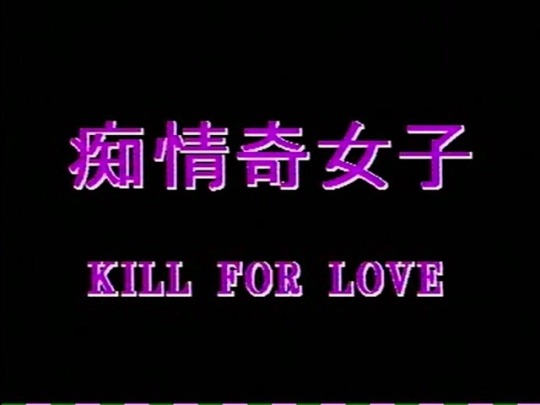


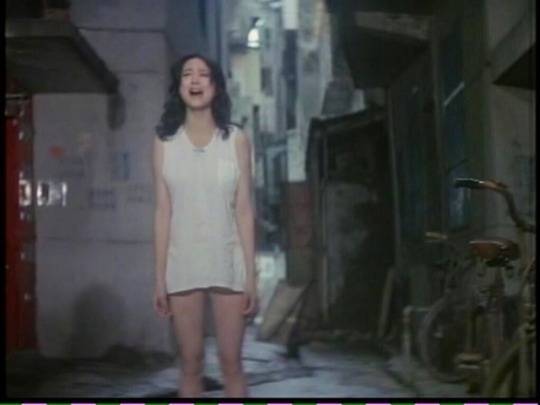
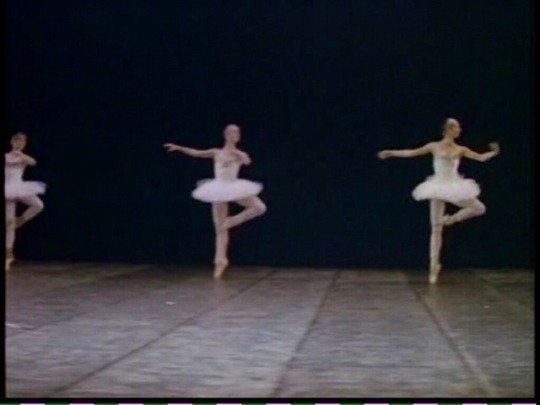
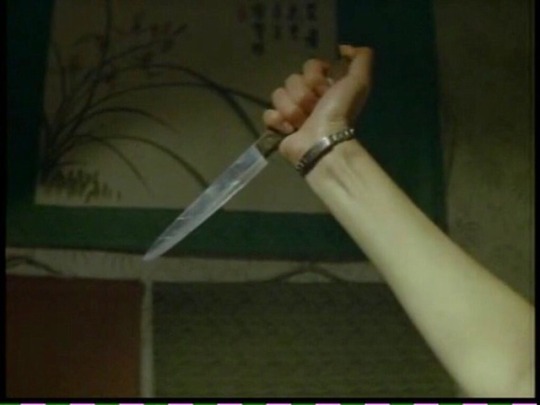


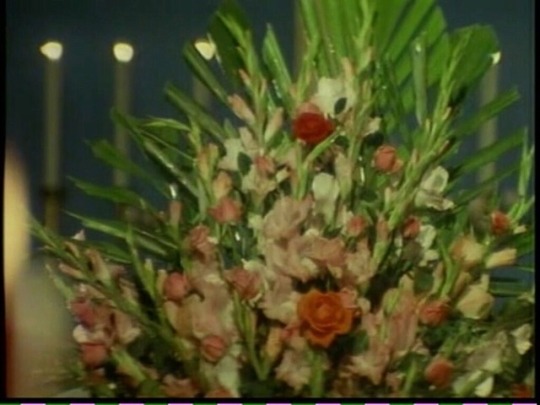

痴情女子 - Kill for Love (1982)
#痴情女子#kill for love#陳耀圻#richard chen#richard chen yao-chi#陸小芬#hsiao-fen lu#lu hsiao-fen#fonda lynn#張富美#chang fu-mei#趙樹海#chiu shu-hoi#crime#drama#revenge#taiwan#taiwanese movies#taiwanese cinema#taiwanese films#exploitation#asian cinema#asian movies#asian films#world cinema#foreign cinema#foreign films
71 notes
·
View notes
Text
Lu Ji’s “Discourse on the Fall of Wu (Part 1)”
Lu Ji was the grandson of Lu Xun and the son of Lu Kang; he was noted as being a literary genius, along with his younger brother Lu Yun.
以孫氏在吳,而祖父世為將相,有大勳於江表,深慨孫皓舉而棄之,乃論權所以得,皓所以亡,又欲述其祖父功業,遂作《辯亡論》二篇。其上篇曰:昔漢氏失禦,奸臣竊命,禍基京畿,毒遍宇內,皇綱弛頓,王室遂卑。於是群雄蜂駭,義兵四合。吳武烈皇帝慷慨下國,電發荊南,權略紛紜,忠勇伯世,威棱則夷羿震盪,兵交則醜虜授馘,遂掃清宗祊,蒸禋皇祖。于時雲興之將帶州,猋起之師跨邑,哮闞之群風驅,熊羆之族霧合。雖兵以義動,同盟戮力,然皆苞藏禍心,阻兵怙亂,或師無謀律,喪威稔寇。忠規武節,未有如此其著者也。
Lu Ji considered how, during the reign of the Sun clan in Eastern Wu, his grandfather and father had served that state as generals and chief ministers and had performed great deeds on its behalf. He bitterly lamented his family's loss of status after Sun Hao came to power. Thus Lu Ji wrote an essay in two parts on the rise and fall of Eastern Wu, in which he extolled the deeds of Sun Quan (who had employed his grandfather Lu Xun) and castigated the errors of Sun Hao, as well as glorifying the achievements and the efforts of his father and grandfather. This essay was titled Thoughts on the Fall of Wu.
In the first part, he wrote, "Many years ago, the Han dynasty lost control of the realm, as a wicked subject (Dong Zhuo) grasped for power. The disaster reached even the capital region, the foundation of the state, while the poison spread all throughout the realm. The imperial laws were ignored with impunity, and the royal family was reduced to a pitiful state.
"Our Emperor Wulie (Sun Jian), who sympathized with the plight of the state, set out like a flash of lightning from the south of Jingzhou (at Changsha). In planning and strategy he was meticulous and thorough; in courage and loyalty he was an exemplar for the age. With a mere display of strength, the barbarians cowered in fear of him; at the first clash of arms, the despicable villains surrendered their heads. Thus he purged and swept clear the temples and shrines of the Han dynasty and offered prayers and sacrifices to the imperial ancestors.
"There were other men of fortune in those days, to be sure, who likewise called for uprisings on every side. Some of their hosts were like clouds gathered across several provinces, and others were like whirlwinds which engulfed entire cities; some conjured their swarms like billowing gales, and others came into being like so many bears and beasts. But though all these forces claimed to serve a righteous cause and swore to unite their efforts under one banner, yet there was evil within their hearts, for they sought only to take advantage of the chaos through the power of their armies. Indeed, some of these leaders had no greater design than to deepen the turmoil and seize whatever they could. Who among them was loyal or chaste, disciplined or dutiful? Not a one could measure up.
武烈既沒,長沙桓王逸才命世,弱冠秀髮,招攬遺老,與之述業。神兵東驅,奮寡犯眾,攻無堅城之將,戰無交鋒之虜。誅叛柔服,而江外底定;飭法修師,則威德翕赫。賓禮名賢,而張公為之雄;交禦豪俊,而周瑜為之傑。彼二君子皆弘敏而多奇,雅達而聰哲,故同方者以類附,等契者以氣集,江東蓋多士矣。將北伐諸華,誅鉏幹紀,旋皇輿於夷庚,反帝坐於紫闥,挾天子以令諸侯,清天步而歸舊物。戎車既次,群凶側目,大業未就,中世而殞。
"Though Emperor Wulie soon met his end, our King of Changsha (Sun Ce) proved himself to be an exceptional talent and a master of the age. His brilliance emerged even in the bloom of youth, and he beckoned forth the aged veterans of his father and set out on his enterprise with them. He charged to the east like some god of war, leading a mere handful to smash great multitudes. When he assaulted a city, no sturdy walls could stop him; when he faced a foe in the field, no fierce vanguard could withstand him. He punished the rebellious and soothed the submissive, thus the lands beyond the Yangzi became peaceful and tranquil; he observed the laws and enforced military restraint, thus he won acclaim both for his power and his virtue.
"The King was courteous and respectful to those of fine reputation and worthy conduct, and so Lord Zhang (Zhang Zhao) regarded him as a hero; he was welcoming and receptive to those of good families and great talents, and so Zhou Yu considered him to be a marvel. And were those two gentlemen not men of broad intellect and ingenious designs, refined character and profound thinking? Encouraged by their example, everyone within the same region attached themselves to the King's cause; he gained a host of accomplished servants like a gathering of the winds, for the Southland had many worthy fellows indeed.
"It was the King's desire to lead a northern campaign into the lands of the Hua (the Central Plains), to bring fire and sword to the evildoers and outlaws there. He aimed to place the imperial carriage in the hands of a loyal adherent and return the imperial throne to the Purple Palace (the Emperor's residence); with the Son of Heaven under his control, he could issue orders to the feudal lords, purify the path of Heaven, and restore things to their former state. In fact he went so far as to assemble his army and chariots and advance towards the north, and the villains were all gazing sideways towards him out of sheer terror at his approach. Yet before this grand cause could reach fruition, the King was cut down in his prime.
用集我大皇帝,以奇蹤襲逸軌,睿心因令圖,從政咨於故實,播憲稽乎遺風;而加之以篤敬,申之以節儉,疇諮俊茂,好謀善斷,束帛旅於丘園,旌命交乎塗巷。故豪彥尋聲而響臻,志士晞光而景騖,異人輻輳,猛士如林。於是張公為師傅;周瑜、陸公、魯肅、呂蒙之儔,入為腹心,出為股肱;甘甯、淩統、程普、賀齊、硃桓、硃然之徒奮其威,韓當、潘璋、黃蓋、蔣欽、周泰之屬宣其力;風雅則諸葛瑾、張承、步騭以名聲光國,政事則顧雍、潘浚、呂范、呂岱以器任幹職,奇偉則虞翻、陸績、張惇以風義舉政,奉使則趙咨、沈珩以敏達延譽,術數則吳范、趙達以禨祥協德;董襲、陳武殺身以衛主,駱統、劉基強諫以補過。謀無遺計,舉不失策。故遂割據山川,跨制荊、吳,而與天下爭衡矣。魏氏嘗藉戰勝之威,率百萬之師,浮鄧塞之舟,下漢陰之眾,羽楫萬計,龍躍順流,銳師千旅,武步原隰,謨臣盈室,武將連衡,喟然有吞江滸之志,壹宇宙之氣。而周瑜驅我偏師,黜之赤壁,喪旗亂轍,僅而獲免,收跡遠遁。漢王亦憑帝王之號,帥巴、漢之人,乘危騁變,結壘千里,志報關羽之敗,圖收湘西之地。而我陸公亦挫之西陵,覆師敗績,困而後濟,絕命永安。續以濡須之寇,臨川摧銳;蓬蘢之戰,孑輪不反。由是二邦之將,喪氣挫鋒,勢<血醜>財匱,而吳莞然坐乘其弊,故魏人請好,漢氏乞盟,遂躋天號,鼎峙而立。西界庸、益之郊,北裂淮、漢之涘,東苞百越之地,南括群蠻之表。於是講八代之禮,搜三王之樂,告類上帝,拱揖群後。武臣毅卒,循江而守;長棘勁鎩,望猋而奮。庶尹盡規于上,黎元展業於下,化協殊裔,風衍遐圻。乃俾一介行人,撫巡外域,巨象逸駿,擾於外閑,明珠瑋寶,耀於內府,珍瑰重跡而至,奇玩應響而赴;輶軒騁于南荒,沖輣息於朔野;黎庶免干戈之患,戎馬無晨服之虞,而帝業固矣。
"However, we were blessed with the presence of our Grand Emperor (Sun Quan). Through his unique talents, he picked up and followed the trail that had been lost; through his farsighted heart, he continued the lapsed mandate. He adopted wise policies to give substance to the government; he gathered sage ordinances to emulate the spirit of the ancients. And he enhanced these things through sincerity and respect and conveyed them through dutifulness and frugality. He was discerning in soliciting the advice of the wise and the talented, and he was an adept thinker and a decisive leader. He distributed silks and grains through the hills and parks, and he displayed his banners and his commands throughout the roads and streets.
"Thus the leaders and gentry of the region heard the call and came to join him, and the ambitious gentlemen of the land wept at his splendor and were glad to be his shadows. Outstanding figures surrounded him like spokes round a hub, stalwart warriors flanked him like a great forest. So it was that Lord Zhang (Zhang Zhao) became his teacher and tutor; so it was that Zhou Yu, Lord Lu (Lu Xun), Lu Su, and Lü Meng became his four champions, serving as his heart and lungs within and his arms and legs without. Such men as Gan Ning, Ling Tong, Cheng Pi, He Qi, Zhu Huan, and Zhu Ran gave him their courage; such figures as Han Dang, Pan Zhang, Huang Gai, Jiang Qin, and Zhou Tai lent him their strength. For culture and refinement, he had Zhuge Jin, Zhang Cheng, and Bu Zhi, whose reputation and influence glorified the state; for administrative skill, he had Gu Yong, Pan Jun, Lü Fan, and Lü Dai, who were credits to their ranks and masters of their roles; for scintillating talents, he had Yu Fan, Lu Xu, and Zhang Dun, whose lofty and righteous spirits uplifted the government. Zhao Zi and Chen Hang had he for envoys, and their nimble tongues and quick wit secured the state's reputation; Wu Fan and Zhao Da had he for mystics, whose divinations and omens ensured the state's blessings. Dong Xi and Chen Wu kept him from harm with vigorous efforts; Luo Tong and Liu Ji steered him from error with forceful remonstrations. In planning, nothing was overlooked or left out; in action, no aspect of strategy was forgotten. And it was for these reasons that the Grand Emperor was able to carve out and occupy the mountains and rivers of his domain, straddling and controlling the regions of Jing and Wu and contending for control of all the realm.
"The lord of Wei (Cao Cao), riding high on his string of victories, led forth an army of a million soldiers against us. He sailed a great fleet through the Deng Narrows and descended upon the south bank of the Han River with a massive host; his feathers and oars numbered in the tens of thousands as he swept down the rivers like a dragon. Fierce cavalry he had by the thousands, while his tiger infantry strode through the plains and marshes. His advisors and strategists filled entire rooms; his officers and generals rode in rows of war carts. He proclaimed his ambition to swallow up all the lands of the lakes and streams and unite the entire realm under his sole dominion. Yet Zhou Yu led forth a meager force to smite this foe at Chibi. The enemy was put to flight and thrown into total confusion; it was only by a narrow escape that he got away with his life, and he scampered far away and fled back where he came from.
"The King of Han (Liu Bei) too claimed the title of sovereign. At the head of an army of the men of Ba and Han, he courted danger and invited calamity, laying out his camps and ramparts across a distance of a thousand li. He sought to avenge the defeat of Guan Yu and reclaim the lands west of the Xiang River. But our Lord Lu (Lu Xun) gave him the same treatment, thrashing him at Xiling (Yiling); the King's army was broken and destroyed, only with great difficulty did he break free from our pursuit, and in the end he expired at Yong'an (Baidicheng).
"Though Wei sought to invade us at Ruxu, we stood firm upon the bank and crushed them; though they attacked us at Penglong, we fought them off and did not yield.
"Thus did we destroy the forces and shake the morale of these our two rivals; their blood and treasure were greatly spent, while Wu stood smug to take advantage of their weakness. So the people of Wei asked us for a peace agreement, and the leaders of Han begged us for an alliance. And by the time our lord had claimed the heavenly title, the realm had settled into a tripartite division.
"To the west we encroached upon the borders of Yong and Yi (Yizhou); to the north we occupied the lines of the rivers Huai and Han; to the east we conquered the lands of the Yue peoples; to the south we bought the Man tribes under our control. The Grand Emperor discussed the rites of the Eight Monarchs (the Five Emperors and Three Sovereigns) and sought out the music of the Three Founders (of Xia, Shang, and Zhou), and he announced his affairs to the Supreme Deity and paid his respects to the various nobles. Our martial servants and valiant soldiers stoutly guarded the Yangzi; with their long lances and strong spears, they zealously seized the spirit of the whirlwind. The subjects of the state observed full propriety above, and the common people practiced their livelihoods below; moral transformation spread to every corner, and good culture touched every place. Envoys and agents were sent out to comfort and inspect the furthest regions. Enormous elephants and incredible horses swarmed about in the outer stables; bright jewels and precious treasures glittered in the inner storehouses. Again and again, wondrous baubles were sent to us; time after time, strange trinkets arrived at our court. Carriages aplenty swiftly brought word from out of the southern wastes; convoys of carts quickly brought news from out of the northern wilds. The people were spared from the terrors of warfare, and the warhorses had no need for morning exercises. The imperial legacy was secure.
大皇既沒,幼主蒞朝,奸回肆虐。景皇聿興,虔修遺憲,政無大闕,守文之良主也。降及歸命之初,典刑未滅,故老猶存。大司馬陸公以文武熙朝,左丞相陸凱以謇諤盡規,而施績、範慎以威重顯,丁奉、鐘離斐以武毅稱,孟宗、丁固之徒為公卿,樓玄、賀邵之屬掌機事,元首雖病,股肱猶良。爰逮末葉,群公既喪,然後黔首有瓦解之患,皇家有土崩之釁,曆命應化而微,王師躡運而發,卒散于陳,眾奔於邑,城池無籓籬之固,山川無溝阜之勢,非有工輸雲梯之械,智伯灌激之害,楚子築室之圍,燕人濟西之隊,軍未浹辰而社稷夷矣。雖忠臣孤憤,烈士死節,將奚救哉!
"Once the Grand Emperor left us, the Young Lord (Sun Liang) sat the throne for a time, while miscreants flaunted their cruel and wicked power. After them came Emperor Jing (Sun Xiu), who brought the laws back into their proper form. He was devoted to and restored the old order of things, and he committed no great faults in his governance of the state. He was a good leader who maintained what was right. But next was the Marquis of Guiming (Sun Hao).
"At the beginning of the Marquis' reign, the laws and canons had not yet been dispensed with, and the veteran servants of the previous rulers were still in place. The Grand Marshal, Lord Lu (Lu Kang), did honor to the court with his civil talents and his martial prowess; the Prime Minister of the Left, Lu Kai, ensured integrity through his forthright and honest admonitions. There were Shi Ji and Fan Shen, conspicuous for their valor and gravity, and Ding Feng and Zhongli Fei, acclaimed for their might and resolve; there were people like Meng Zong and Ding Gu to act as great ministers and fellows like Lou Xuan and He Shao to handle the state's affairs. Though the head of the state was sick, still the limbs remained healthy and strong. Alas, in the end they were still only the branches and leaves of the state, and after their demise, Wu came to grief.
"It has been said that a state need not fear 'a calamity of falling tiles' (an external threat), but what it ought to fear is 'a disaster of a collapsing mound' (an internal weakness). Our people had been ready to combat any danger of 'falling tiles', but the imperial family fell prey to a 'collapsing mound'. By the time the government army (of Jin) had seized the momentum and set out to attack, the Mandate had already passed from us and the legitimacy of the ruler had diminished. Our soldiers scattered from their formations, and our people abandoned their cities; our walls and moats proved less useful than mere barricades and fences, and our mountains and rivers were no greater obstacles than little hills and ditches. No one was prepared to face 'the cloud ladders of Gong Shu' or endure 'the floodwaters of Zhi Yao'; there was never a need for the enemy to emulate the Viscount of Chu by 'building houses at the siege lines' or the generals of Yan by 'routing us west of Ji'. Our army resisted for not even a fortnight before the altars of state collapsed. And though there were some generals who were loyal to the last and planned never to yield, or others who would die rather than abandon their duty, how could this mere handful have saved the state alone?
夫曹、劉之將非一世所選,向時之師無曩日之眾,戰守之道抑有前符,險阻之利俄然未改,而成敗貿理,古今詭趣,何哉?彼此之化殊,授任之才異也。
"The generals of the armies of Cao Cao and Liu Bei were not inferior to those of the recent invasion, nor was the enemy strength of former times less than in the late campaign; the methods of how to attack and how to defend had not been altered since before, and the natural defenses and terrain of our state were no less perilous to the foe. Yet we prevailed then and faltered now, which goes against reason and makes a mockery of sense. Why did it happen? Because of the difference in character between the ruler then and the one now, the distinction in talent between that granter of offices and ours."
10 notes
·
View notes
Photo
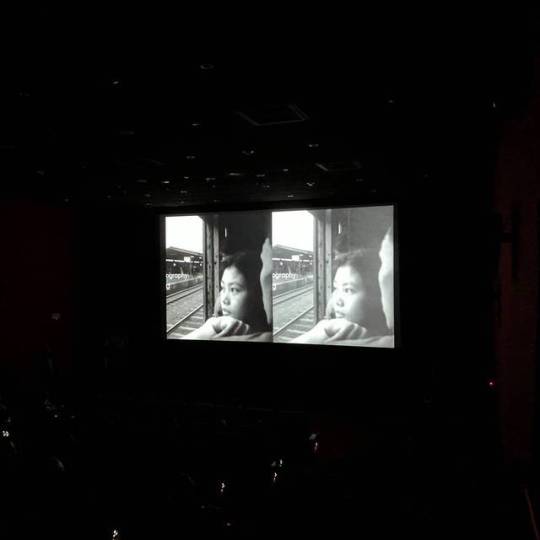
職人。 陳耀圻《上山》,1966。 數位修復版 喜歡修復前後的對照圖 更喜歡旁邊的各種微光 #慢速人生 #國家電影中心 #taiwanfilminstitute #陳耀圻 #上山 (在 光點華山電影館)
0 notes
Photo
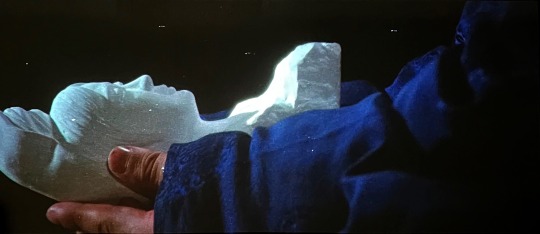



LEE Hsing
- Jade Goddess
1969
#李行#玉觀音#陳耀圻#白蘭#碾玉觀音#姚一葦#lee hsing#jade goddess#chen yao chi#richard chen#1969#bai lan#台北之春#taiwanese film
47 notes
·
View notes
Photo
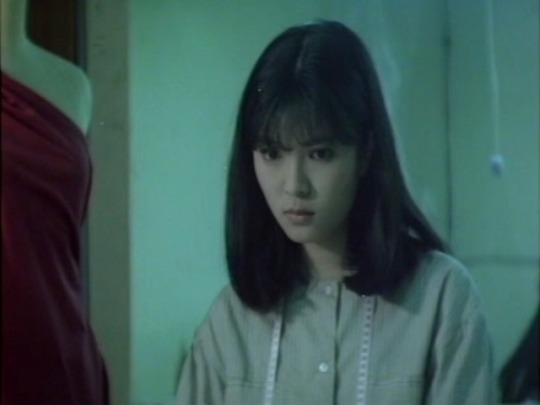

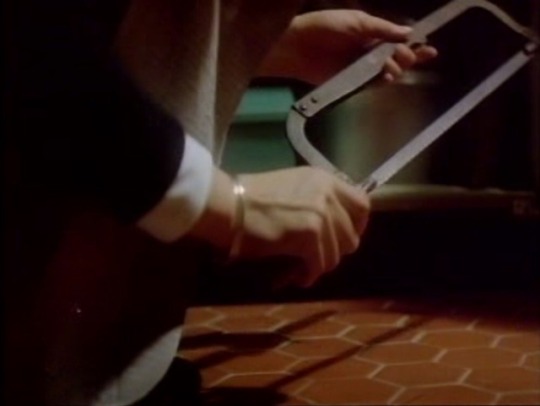


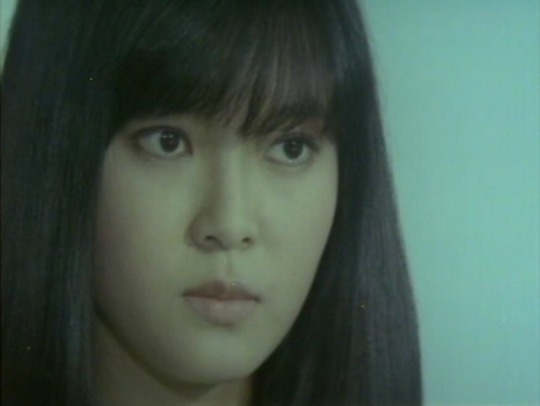
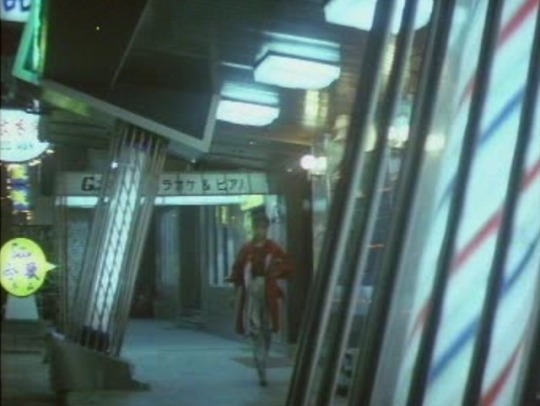


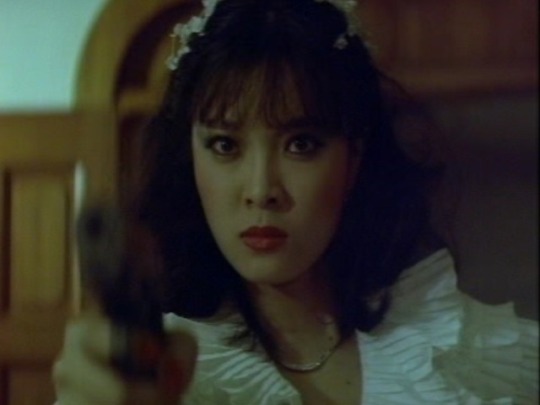
Girl with a Gun aka Fury in Red [神勇女煞星] (1982): Taiwan’s remake of Ms. 45 (1981)
#神勇女煞星#霹靂大妞#girl with a gun#fury in red#richard chen#richard chen yao-chi#陳耀圻#yao-chi chen#ying hsia#銀霞#alan tam#譚詠麟#grindhouse#exploitation#remake#taiwanese cinema#taiwanese film#taiwan#ms. 45#abel ferrara#zoe lund#cult classic#80s cinema#asian films#asian cinema
72 notes
·
View notes
Text
韓湘寧、張照堂、莊靈、黃永松 大師齊聚 第11屆台灣國際紀錄片影展,隆重開幕!
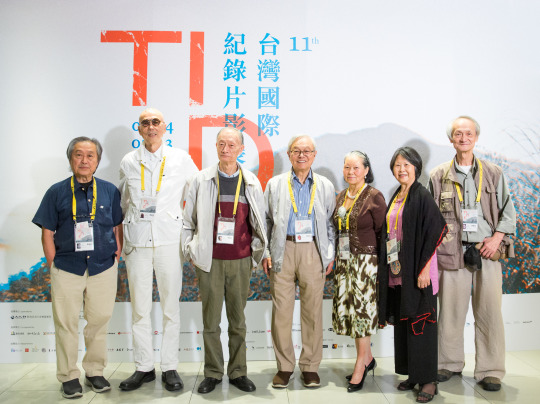
第11屆台灣國際紀錄片影展
第11屆「台灣國際紀錄片影展(TIDF)」於今天(5/4)盛大開幕,開幕片為韓湘寧《今日開幕》、張照堂《現代詩展╱1966》與陳耀圻《上山》三部作品聯映!三部作品皆創作於1960年代的台灣,時隔50年首度出土。韓湘寧、張照堂兩位導演也偕同《上���》女主角黃貴蓉及男主角、漢聲出版社創辦人黃永松,以及《劇場》雜誌創辦人莊靈、《上山》攝影師賴成英、美術家梁小良同台,為TIDF揭開序幕!場面溫馨感人,宛如一場睽違已久的同學會。
今年是TIDF二十週年,文化部丁曉菁次長、國家電影中心陳斌全執行長特別出席開幕典禮,給予影展與國內外創作者祝福。張照堂同時也是第一屆TIDF的創始人員,他感性表示:「當年創立TIDF像是種了一棵小樹苗,如今不僅長成了樹、結滿了果實,更塑造了台灣紀錄片新文化的運動」。
提到自己創作於1965年的作品《今日開幕》,藝術家韓湘寧說自己是「在對的時間,生活在對的地方」,能在體現真實自由的1960年代於台北、紐約結識不同領域的朋友,對他個人有重要影響,並感謝主辦單位看重這些老作品。張照堂在搬家時意外翻出的《現代詩展╱1966》八厘米膠卷,記錄了他與黃華成、邱剛健、龍思良、黃永松等人在1966年3月29日舉辦的「現代詩展」現場花絮,這是台灣第一個裝置藝術展覽,珍貴的影像透露出這幫青春正盛的文藝青年,充滿爆發力與想像力的創作能量。黃永松也笑說當時的創作粗糙但非常奔放,年輕的他們努力完成「有觀念的裝置藝術」,也因為當年有這些好友帶動,接下來才創辦了《漢聲》雜誌、持續往前走。
被譽為台灣真實電影先驅的陳耀圻,其1966年的作品《上山》,去年由國家電影中心修復完成,片中主角黃永松、黃貴蓉特地蒞臨開幕現場,這也是兩位主角睽違五十年,首次在大銀幕上看見自己青春的身影。黃永松感動地說「青春真是件好事」,謝謝影片記錄下自己年少不懂事的樣子;黃貴蓉也感性回憶,當年自己只是一個愛做夢、想當演員的藝專學生,參與《上山》的製作可說是相當偶然,卻真實的記錄了青春。這次女兒一家也跟著她從美國飛回台灣觀影,小孫女更在映後座談舉手提問外婆「你喜歡你的工作嗎?」黃貴蓉也笑著回答,雖然後來沒有繼續在演藝事業發展,但這二十分鐘的影片卻保留住年少燦爛的夢想,「外婆的表現還不差吧?」
第11屆台灣國際紀錄片影展為期10天,帶來全世界170部紀錄片、超過200場放映、4個實體展覽、1個劇場表演、近10場論壇、123場映後座談,並有100多位國際影人參與,規模為歷屆之最。三大競賽—亞洲視野、國際、台灣競賽的入圍作品,自2,445件影片中脫穎而出,具獨立觀點與創意美學,將一同角逐亞洲紀錄片影展最高的總獎金。TIDF招牌單元「敬!華語獨立紀錄片」今年囊括多位新銳導演的作品,以新視角凝視華語世界;另一常設單元「記憶X記憶」則聚焦聲音,並推出三部沒有畫面、只有聲音的「聲音紀錄片」,結合「電影耳」展覽,要打開觀眾感官,帶來觀影新體驗。「當代精選」引薦多部近兩年在國際上優秀的作品,在議題、製作與形式上皆獨樹一格;「想像式前衛:1960s的電影實驗」挖掘1960年代的前衛影像,一探當年文藝青年的思想與生活風貌;「不只是歷史文件:港台錄像對話1980-90s」則對焦港台經典錄像作品,回應重要政治事件。
本屆焦點影人為享譽國際影展的拉脫維亞女導演萊拉.巴卡尼娜(Laila Pakalnina),她擅長從冷靜的觀察鏡頭精準捕捉微小事件,並從中找出故事所在,並將於5月11日舉辦「大師講堂」。「時光台灣:翻檔案」單元則與公共電視合作,邀請14位台灣導演運用檔案影像再創作,作品將在TIDF世界首映。此外,本屆的重磅單元「憂傷似海:東南亞真實之浪」,更邀請前鹿特丹影展策展人葛江.祝鴻策劃,精選35部經典與新銳東南亞作品,刻劃東南亞創作的樣貌。
更多影展節目內容及購票資訊,請上官網查詢。
※不加入Y!電影粉絲團,你就悶了!
#_revsp:movies.yahoo.tw#movieheadline#yahookimo#_uuid:2d55bdb0-679f-31e1-b96d-6ae89b6223da#_lmsid:a077000000CKn8aAAD#_category:yct:001000076
0 notes